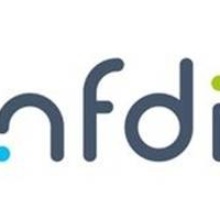The expert panel of the German Research Foundation (DFG) has issued funding recommendations for the NFDI-MatWerk and MaRDI consortia. SimTech is involved in both as a so-called "participating institution".
"This is a great success, thanks to Felix Fritzen and Dominik Göddeke, and it is very valuable for the University of Stuttgart and SimTech," says Thomas Ertl, spokesperson of the Cluster of Excellence.
The aim of the national research data infrastructure (NFDI) is to systematically manage scientific and research data, provide long-term data storage, backup and accessibility, and network the data both nationally and internationally. The NFDI will bring multiple stakeholders together in a coordinated network of consortia tasked with providing science-driven data services to research communities.
The final decision on possible funding will be made by the Joint Science Conference of the Federal Government and the Länder (GWK) in July 2021.
National Research Data Infrastructure for Materials Science & Engineering (NFDI-MatWerk)
The National Research Data Infrastructure for Materials Science & Engineering (NFDI-MatWerk) supports the digital transformation in materials science and engineering through domain-specific structures, tools, and platforms. The focus is on the collection, search and exchange of research data and its intelligent use. To achieve the goals of NFDI-MatWerk, the community is involved from the beginning.
Felix Fritzen, SimTech Professor for Data Analytics in Engineering is a participant and member of the core team within NFDI-MatWerk. Thematically, the development of ontologies will be pursued, for example for microstructure characterization and synthesis. The collection and processing of material data is a major contribution to SimTech Vision 3 "Next-Generation Virtual Materials Design - a motivation for data-integrated computational engineering".
Mathematical Research Data Initiative (MaRDI)
The Mathematical Research Data Initiative (MaRDI) aims to set standards for certified mathematical research data, the design of confirmable workflows, and it provides services for the scientific community. The three initial, research motivated pillars are scientific computing, computer algebra, and interdisciplinary mathematical research. They target certified data and software developments as well as confirmable workflows, working toward respective service prototypes. For the complex and multifaceted mathematical data arising in the aforementioned fields, standardized data formats, application programming interfaces (APIs), and query languages will be developed. The prototypical services will be expanded into full services which provide added value to current research.
Within MaRDI, Dominik Göddeke co-leads Task Area 4, which is responsible for the interaction with other disciplines and consortia.


